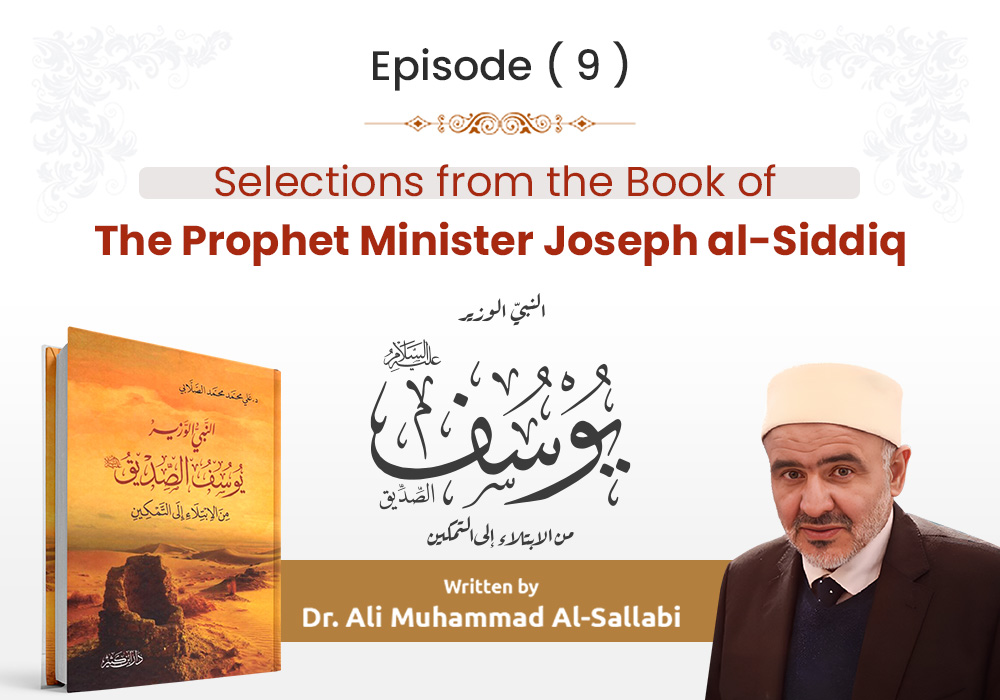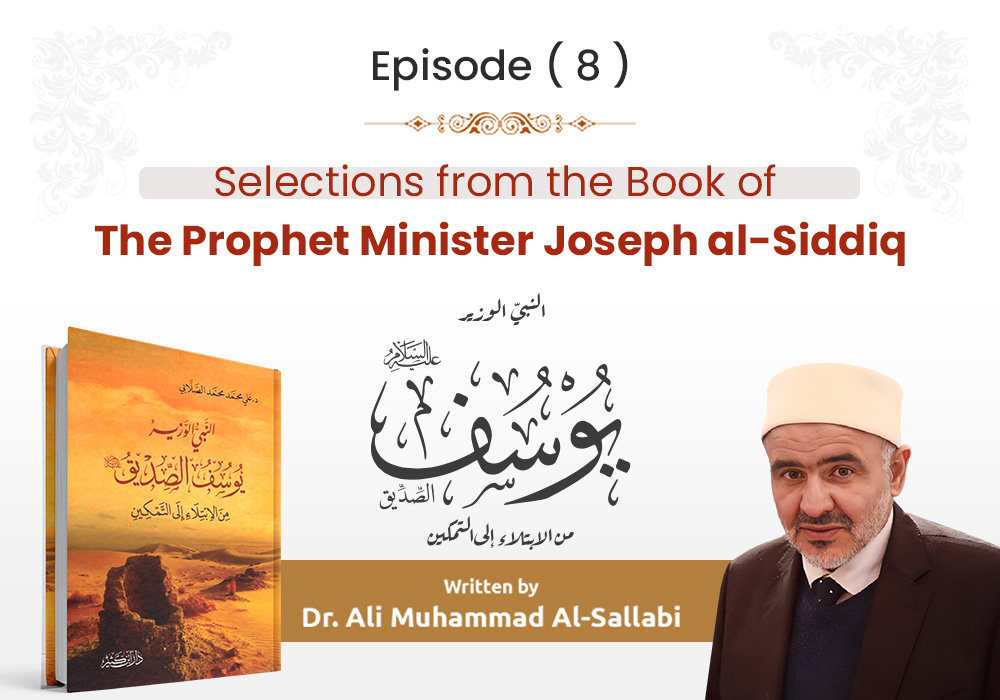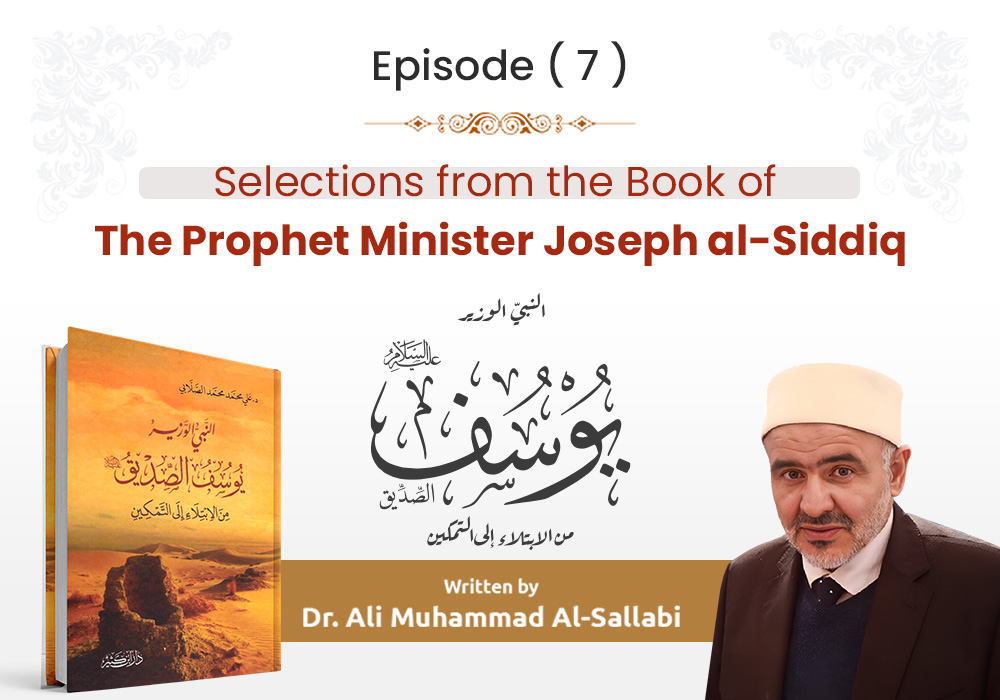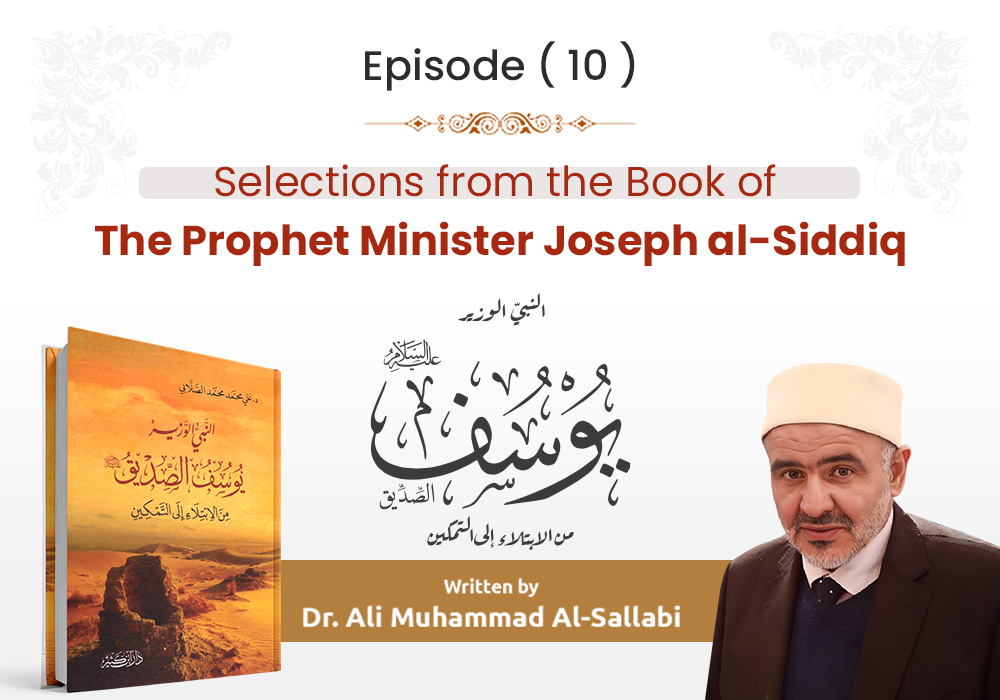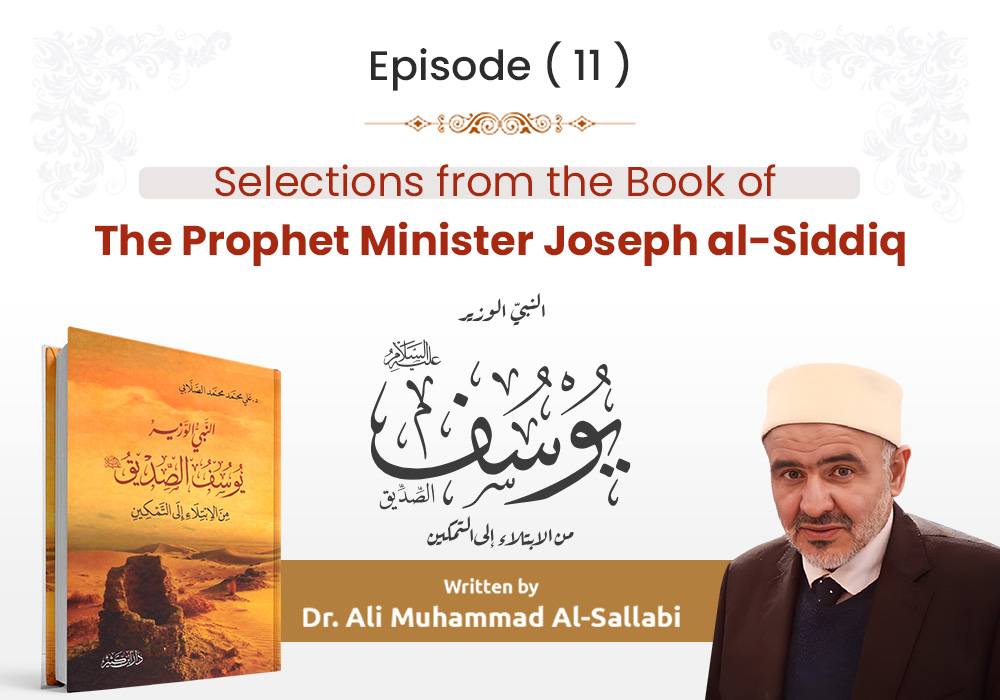The importance of the story of Joseph, peace be upon him, its characteristics and purposes; P.3
Selections from the Book The Prophet Minister Joseph al-Siddiq…
Written by Dr. Ali Muhammad al-Sallabi...
Episode (9)
In this Surah, there are important moral, behavioral, educational, and psychological lessons. Let us quickly take this example as a model until the point of detailing comes; consider the call to the purity of speech. You find Joseph, peace be upon him, serving as a role model and a caller who delivers practical lectures in every stage of his life and circumstance: as a child and an adult, as a slave and a master, in times of hardship, and when the flower of the world opened up to him, in times of anger, sorrow, satisfaction, joy, and triumph, throughout the entire Surah. Reflect on his stance in the face of unjust imprisonment and tyranny. He says to the messenger: {Return to your master and ask him what is the case of the women who cut their hands. Indeed, my Lord is Knowing of their plan} [Yusuf: 50]. This is a request to reveal the truth with noble integrity. He does not point to the wife of the Aziz, nor does he say, "those who tempted me," but he merely alludes to the necessity of exonerating the status of prophethood. Also from the purity of his tongue, it is evident when they said: {O ‘Azeez, indeed he has a father [who is] an old man, so take one of us in place of him. Indeed, we see you as a doer of good} [Yusuf: 78]. He responded: {[I seek] the refuge of Allah [to prevent] that we take except him with whom we found our possession. Indeed, we would then be unjust} [Yusuf: 79]. He did not say: "We will not take anyone except the thief," because he knew that his brother did not steal. Therefore, he maintained his chastity in the face of deceit, not accusing his brother until he described him in a manner that exonerated him.
- In the surah, we also find principles and foundations for addressing crises and managing them, both at the individual and societal levels. Our nation is currently facing various crises, and one of the most powerful crises mentioned in the surah is the seven years of severe famine. In the way Joseph, peace be upon him, managed this crisis in Egypt, there are valuable lessons and benefits that we should reflect upon in dealing with the challenges facing our own society.
- In this Surah, we also find a method for interpreting dreams and an explanation of some of their aspects. The Surah mentions dreams in three instances, and the Prophet, peace and blessings be upon him, said: ''O people, nothing of the glad tidings of prophecy is left except a good dream that a Muslim sees or is seen about him''. However, there have been misunderstandings and flaws among people regarding this matter. Some have denied the significance of dream indications and their meanings, downplaying their importance, comparing them to the claims of those who interpreted dreams for the king as mere {a mixture of false dreams} [Yusuf: 44]. On the other hand, some have exaggerated the importance of dreams - unfortunately - to the extent of considering them a source of Sharia legislation. The people of truth, however, stood on the middle ground in this matter.
- In this Surah, there is also an explanation that the outcome of evil plotting is loss and disgrace. The brothers of Prophet Joseph, peace be upon him, conspired against him to get rid of him. What was the outcome of their scheme? Similarly, the wife of Al-Aziz plotted and schemed, closing the doors and preparing a trap for Prophet Joseph. What was the outcome for her? This serves as a lesson for the nation because grand schemes are now being woven at the level of nations, states, peoples, and individuals. The story of Prophet Joseph, peace be upon him, warns every deceiver with falsehood: Beware! {but the evil plot does not encompass except its own people} [Fatir: 43]. Allah also says, {But they plan, and Allah plans. And Allah is the best of planners} [Al-Anfal: 30]. This provides reassurance to the nation, indicating that the plots of its enemies will recoil upon them.
- In Surah Yusuf, we find the stories of those who repent and seek forgiveness, illustrating the impact of repentance and seeking forgiveness in life. Upon examining the call to repentance and seeking forgiveness in the Quran, it becomes evident that every prophet commanded their people to engage in these acts. Despite being easy on the tongue, seeking forgiveness is among the most exclusive forms of supplication. Supplication is considered worship, as mentioned in the hadith. Almighty Allah says: {And your Lord says, “Call upon Me; I will respond to you.” Indeed, those who disdain My worship will enter Hell [rendered] contemptible} [Ghafir: 60] Therefore, repentance and seeking forgiveness are prominent themes in Surah Yusuf.
- In this Surah, we find the utilization of opportunities, particularly by Prophet Joseph, peace be upon him, both before his imprisonment, during his time in prison, and even in the later stages of his glory. The nation, likewise, needs to capitalize on opportunities genuinely and in their rightful place. Neglecting opportunities leads to regret, as opportunities are fleeting and can slip away quickly while the process of recovery is often slow.
In the story of Prophet Joseph and Prophet Jacob in Surah Yusuf, a rare example of patience in all its forms is illustrated, and they emerged victorious in both worlds. Almighty Allah immortalized their mention in His book to teach people, {Indeed, he who fears Allah and is patient, then indeed, Allah does not allow to be lost the reward of those who do good} [Yusuf: 90]. The nation needs those who can teach them patience, and it is imperative for us to emulate those whom Allah has guided and made leaders.
- The noble Surah also highlights the quality of Ihsan (excellence), which is one of the most prominent qualities displayed by Prophet Joseph. Everyone who knew him testified to this virtue. Excellence goes beyond mere charity to the poor, as commonly perceived by many. Its meaning is broader and more comprehensive. This indication serves as an invitation for believers to emulate these exemplary figures, aiming to attain elevation in both this world and the Hereafter.
- The noble Surah also points to the components of victory and empowerment. Our nation is in dire need of reflecting upon these components and acting upon them to emerge from the current challenges it faces.
- Ali Muhammad al-Sallabi, The Prophet Minister Joseph al-Siddiq, pp. 50-54.
- Signs for those who ask, previous reference, pp. 15-17.
For further information and review of the sources for the article, see:
The Book of The Prophet Minister Joseph al-Siddiq on the official website of Sheikh Dr. Ali Muhammad al-Sallabi:


